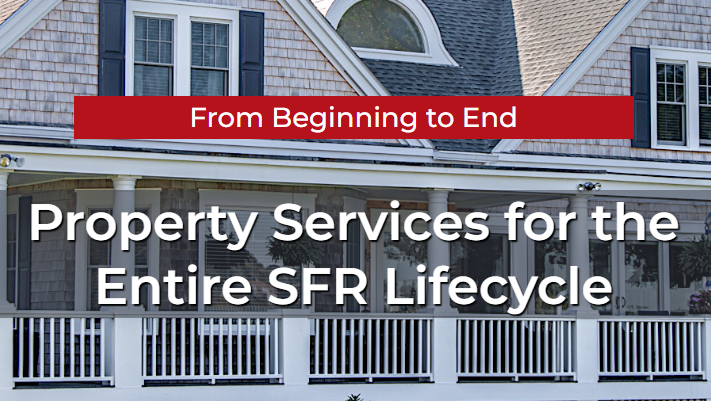7 Tips for Managing SFR Properties in HOA Neighborhoods

For some investors, a homeowners association (HOA) can make single-family rental (SFR) properties seem less appealing because of regulations and potential violations. But by putting a few proactive strategies and processes into place, you can sidestep the challenges of an HOA neighborhood and maximize your investments in your SFR properties - and avoid those pesky fines.
HOAs are designed to help maintain the value of all properties within a neighborhood, and they can provide community amenities like pools, playgrounds and parks that help attract good tenants. But HOA neighborhoods can also cause problems for SFR owners and operators from time to time, primarily through stringent regulations and fines for violations.
The good news is that most issues are minor and avoidable. By putting a few proactive strategies and processes into place, you can sidestep the challenges of an HOA neighborhood and maximize your investments in your SFR properties.
1. Know the rules/CC&Rs
Ensuring that you know the HOA neighborhood rules—from what kinds of violations will lead to fines to the types of actions that require HOA approval (such as house painting or additions)—can help avoid costly issues. It’s also important to understand the process for gaining those HOA approvals and which individuals you need to contact to get them.
2. Understand the HOA’s responsibilities
For example, does the HOA fee include front-yard landscaping, or is the owner responsible? Knowing this helps ensure you can plan accordingly for services at your SFR properties.
3. Communicate with your renter
Your rental agreement should spell out what the renter is responsible for—for example, does the trash can have to be off the curb by a certain time after trash pick-up? What are their landscaping responsibilities? Make sure that’s clear with your renter and that your agreement details any HOA fines you’ll pass on to them if rules aren’t followed.
4. Get involved in the HOA
Depending on the number of SFR properties you own in the same neighborhood, you may want to consider running for a seat on the board so that you have some say over any new rules or other initiatives. But at a minimum, get to know a few key HOA board members, so that if issues do arise, they can be handled person to person.
5. Stay in good standing with the HOA
Outstanding dues and fines can add up quickly. While a lease agreement may stipulate your tenant will be charged if certain fines are incurred, owners and operators are ultimately responsible for ensuring the fines are paid to the HOA first and then collecting them from the renter secondarily. Make sure you’re aware of any and all HOA dues from the start and that fines are paid promptly. When you’re in good standing with the HOA, you’re in a better position to engage in productive discussions about HOA regulations and any issues that arise with your SFR properties.
6. Conduct regular and quick property checks
When your property is well-maintained—especially in comparison with others in the neighborhood—you’re less likely to hear from the HOA. If you’re not in the area or have too many SFR properties to personally oversee, consider a partner like MCS who can provide quick code checks of your property. In addition to helping you stay on top of any exterior routine maintenance, these regularly scheduled drive-by checks could enable your partner to catch potential issues before they become costly HOA violations.
7. Engage a partner to help remediate issues
With a property services partner like MCS, you can work to resolve any issues—from paint, grass cutting and weed removal to fence, wall and garage door repairs—quickly. After all, promptly addressing violations can help minimize potential fines.
Find out how MCS can help you work more effectively with HOAs and learn about all of our other SFR services by contacting Jason Myers today.



